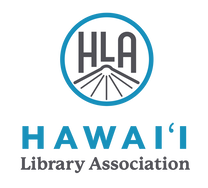|
The Hawai‘i Library Association stands with library workers, patrons, and the communities we serve who are discriminated against and are subject to violence based solely on their race or ethnicity. We do this in support of our brothers and sisters in the ALA Black Caucus “Statement Condemning Increased Violence and Racism Towards Black Americans and People of Color.”
Libraries, at their core, are communities where all are welcome. We stand for diversity, equity, inclusion, and open access to information. The pervasive and institutionalized racism in our society today denies these principles, promotes oppression, and dehumanizes our brothers and sisters. We must work together to end such racism and discrimination. While libraries have long considered themselves as neutral ground, there is no neutrality in the face of oppression. Using power and structure to limit others is contrary to our principles and mission. All have the right to life, liberty, and the pursuit of happiness. All have the right to have their voice heard. We cannot be silent. We cannot just stand by. Change will not happen overnight. But it will only happen as we work together. Libraries can facilitate this work by providing safe spaces, by helping educate, and by supporting those who feel voiceless. Let us stand together and lift up those who have been pushed down, kneeled upon, and discarded. Let us stand together as libraries, as communities, and as sisters and brothers. Let us stand together and support those who need it most. Let us stand together so Black People and People of Color can breathe freely. Let us stand together as one ‘ohana.
0 Comments
After careful review of current circumstances and out of an abundance of caution, the HLA Board has cancelled the HLA Spring Meeting. Concerns related to COVID-19 have impacted every facet of our society, including libraries. We are often the frontline of community interaction and work with many vulnerable members of our population. As each of us develop response plans to the current circumstances, we would encourage a review of ALA’s Pandemic Preparedness site (http://www.ala.org/tools/atoz/pandemic-preparedness) for library specific resources and the CDC’s Coronavirus Disease 2019 (COVID-19) site (https://www.cdc.gov/coronavirus/2019-nCoV/index.html) and the State of Hawai‘i’s Coronavirus Disease 2019 (COVID-19) site (https://health.hawaii.gov/docd/advisories/novel-coronavirus-2019/)
In the meantime the HLA Board hopes everyone will be safe and be able to make a smooth transition to serving our users during this challenge. Many State Library Administrative Agencies are reporting steep and sudden declines in state revenues for library services, according to a report released today by the Institute of Museum and Library Services. The majority of states reported reductions, with six states reporting losses of greater than 15 percent in one year. Overall, 51 SLAAs collected $34 million less in state revenue in FY 2009 than they did in FY 2008. During the same period, SLAAs lost 227 full-time employees, a one-year decrease of 6.7 percent.
SLAAs play an important role in planning and evaluating library services in the states. While the range of services each SLAA provides differs state by state, all are tasked with administering the IMLS Grants to States program, which helps libraries embrace technology, serve underserved populations, and develop new service models. "State Library Administrative Agencies are part of the educational and economic fabric of the nation," said Susan Hildreth, director of IMLS. "SLAAs assess needs for library services in the state and support a wide range of programs that support the nation's libraries as they help people get work, pursue their education, and strengthen the civic life of communities everywhere. It is important for us to track and report about the health of these essential state agencies." |
Archives
June 2024
Categories
All
|
|

 RSS Feed
RSS Feed
